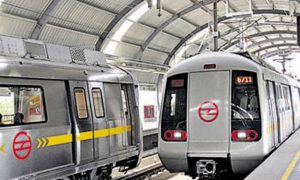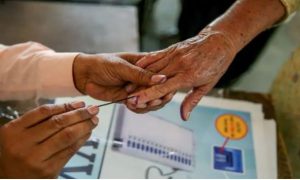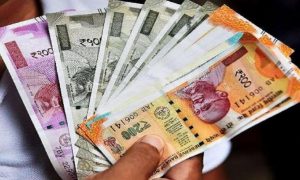On April 4, India’s largest mortgage lender Housing Development Finance Corporation (HDFC) and HDFC Bank announced the merger of the two entities in a deal that is seen as a landmark event in the history of the Indian banking sector. Together, the combined entity will have a market-cap of Rs 12.8 lakh crore and a balance sheet size of Rs 17.9 lakh crore. In other words, the resultant entity will be only second to State Bank of India (SBI) in size.
As per the plan, HDFC will acquire 41 percent stake in HDFC Bank through the transformational merger. Every 25 shares held by HDFC shareholders will fetch them 42 shares of the bank. The deal follows the Indian central bank tightening the norms for non-banking finance companies or NBFCs, thus nearly eliminating the regulatory arbitrage for NBFCs.
Read More:-Paytm Money takes LIC IPO to retail stores; check here for details
There is a growing view that the HDFC-HDFC Bank merger could set the tone for further consolidation in the NBFC industry and raise challenges to rivals.
In an exclusive, freewheeling chat with Moneycontrol, Deepak Parekh, iconic banker and chairman of HDFC, spoke about a range of critical issues concerning the company, including the challenges ahead and his own plans post retirement. Edited excerpts:
What is the update on approvals for the merger?
We are waiting for the RBI letter on some aspects like SLR (Statutory Liquidity Ratio), CRR (Cash Reserve Ratio) and PSL (Priority Sector Lending). We have not heard from the regulator yet. Once we hear from the regulator, we will come to a conclusion.
Read More:-Stocks to Watch Today: Wipro, HDFC, Britannia Industries, Adani Wilmar, and Others
By when do you expect the regulatory approvals to come?
We expect that the approvals will take 15 months or so because multiple approvals are required. We need approvals from the pension regulator, the insurance regulator, SEBI (Securities and Exchange Board of India), RBI, shareholders, CCI (Competition Commission of India) and NCLT (National Company Law Tribunal). There are multiple approvals that are required and it should take anywhere between 15 and 18 months.
How would you explain the merger rationale to HDFC employees?
We are talking with our employees. We are planning to go to all offices and talk to our employees and explain the rationale and need for the merger. We will be telling them why this (merger) had to be done now. The SLR, CRR have come down from 30 percent to 22 percent. PSL is much simpler now because you can buy PSL certificates. Interest rates are low, liquidity is large and it makes sense for the bank’s books also. The bank has a large retail book, but it doesn’t have that many mortgages. So, the tenures of retail loans for the bank also go up. Our shares get cancelled in the bank, so the foreign limit goes up. There are a number of advantages on why now and not later. We have to explain that to our employees. We had a talk, we have had a town hall. Each senior person is talking to their branches.
What is your message to HDFC shareholders? Any concerns at this point?
I think, there is nothing more to communicate except that investors must have patience. I think, we will have a good, big bank and a very successful organisation. We will proceed with this (merger) whatsoever. There is no going back. We are waiting for the approvals. But are ready to do whatever approvals are needed for the merger.
But the HDFC-HDFC Bank stocks have corrected post the merger announcement…
The market itself has come off after our announcement. India, being one of the largest emerging markets, has taken the largest hit. When there are redemptions, foreign investors have to sell their holdings because India is the only country that is standing. So, the massive selling by foreign institutional investors could be their redemption pressure. HDFC and HDFC Bank have a large foreign holding, and so we get impacted.
Any other factors that could have caused a knee-jerk reaction?
One other reason is that our communication was not there. Because when we announced the merger, our results were not out and we could not talk then. After our results on Monday, we will explain the logic, the timing and the rationale of the merger and hold a roadshow with investors. Now that HDFC Bank’s results are out, Sashidhar Jagdishan (HDFC Bank MD) has been holding roadshows with global investors. We were unable to communicate that because of our impending results. Communication, in this regard, is very important to shareholders.
Read More:-ICICI Bank Hikes Fixed Deposit Interest Rates for These Tenures; Check Latest FD Rates
What are the larger challenges for the NBFC industry now that the regulatory arbitrage is nearly gone?
NBFCs will have to gear up. RBI is now bringing in regulations for NBFCs to bring them on par with banks. There is no arbitrage left in an NBFC and the rules that apply for banks will apply for NBFCs, especially the large-scale lenders. The Governor also, in his monetary policy statement, said that large NBFCs will have to rethink their strategy and individually what they want to do. So, there is a thinking that in the NBFC sector large NBFCs cannot survive because of this wholesale funding, retail lending strategy. So, large NBFCs will have to rethink their business model. Small NBFCs will not have a problem.
What could be the thinking of the regulator regarding the NBFC sector?
The RBI, rightly so, is concerned about larger NBFCs with Rs 50,000 crore and more assets because they have retail deposits and the public is involved and we have had some large failures of NBFCs. So, automatically the regulators are concerned about these liquidations and failures of large NBFCs. They have to be more careful and bring in more regulation, compliance requirements that are akin to and supervise more like a bank.
Do you expect more consolidation in the NBFC sector?
I expect consolidation in housing, insurance, in every sector. India is a large country and scale is necessary to survive and take hits also. There will be more mergers in the financial sector, in banking, insurance, and this is the way forward.
How do you assess the demand for housing in India?
I have, in my 44 years with HDFC, not seen housing demand the way it is today. This is for small, middle-class homes. The number of applications that we were receiving in the month of February and March have been phenomenal, much more than we have ever received. The large inventory of housing unsold inventory is also liquidated because people have started buying homes. Now, what we have to see is where inflation and interest rates are headed and if that will curb housing demand.
What is your outlook for the sector?
My view is that in urban India, land is the most expensive asset and the most expensive cost of a house. In cities like Mumbai, there are cases where 70 percent is the cost of the land. So, if the 30 percent cost goes up by 10 percent, all your cost goes up by 3 percent. I think, we can manage because I don’t see land prices going up. Construction cost, labour cost and raw materials are going up, but that forms a smaller portion as land in urban India and big cities is the biggest cost.
Read More:-Vastu Tips For Money: 8 Things You Shouldn’t do After Taking Bath to Avoid Loss of Wealth
Will rising interest rates hamper demand for housing loans?
Interest rates will not jump up suddenly, it will happen in a calibrated way. We, in HDFC, have survived it from 7 percent to 17 percent in my 44 years. We have also seen growth in mortgages when interest rates were 16 and 17 percent. You must understand that there is interest rate deduction for a salaried person up to a certain limit. There are tax incentives if you buy a house, you can offset the interest payment to your salaries or revenue. So, I don’t think the impact is going to be significant. The interest rate hike or inflation may slow down the growth, but we have had massive growth the last year. So, normally, it would take a few more quarters to pick up to those levels.
Will inflation impact retail loans in the banking sector and lead to more bad assets?
The banking sector today is much stronger. A lot of the bad debt has been provided for, it’s cleaned up. There is adequate capital in the system. Credit offtake was tepid last year, but now in the next few years there will be double-digit credit offtake. This is very good for the economy. So, bank nationalisation, clean-up have happened, and we are in for better banks. I don’t see retail NPA (non-performing assets) as a problem. My experience and by seeing the historic position of retail loans is that there may be some reduction of unsecured loans and banks may go for secured loans because some institutions have a large portfolio of unsecured loans. So, that may change and that should change to be safer.
What is your economic growth outlook for India?
I think, we will have a 7-7.5 percent GDP growth for the next few years to come. The indicators are all very positive, whether you take the food grain production, rainfall, IT sector earnings, performance of large companies like steel and cement and the government’s resolve to get more money by privatisation. The government has announced the sale of Pawan Hans also, similarly IDBI Bank privatisation will happen, and LIC IPO is also happening. I think, the intensity of the government’s disinvestment process has started and we will see more and more of this, including consolidation of public sector banks.
Read More: Indian Railways Update: IRCTC Cancels 119 Trains Today on May 2; Check Full List Here
Do you think there will be any interest from financial institutions to take over IDBI Bank?
There will be interest from banks to acquire IDBI Bank. They may get some funding from private equity (PE), but I don’t think they can own majority of bank stock. In asset management also, SEBI has not permitted PEs to hold more than 51 percent.
Personally, what are your plans ahead? Will we see a book from you?I won’t write a book, but I will definitely hang up my boots now.





































